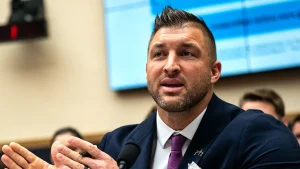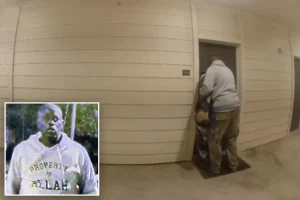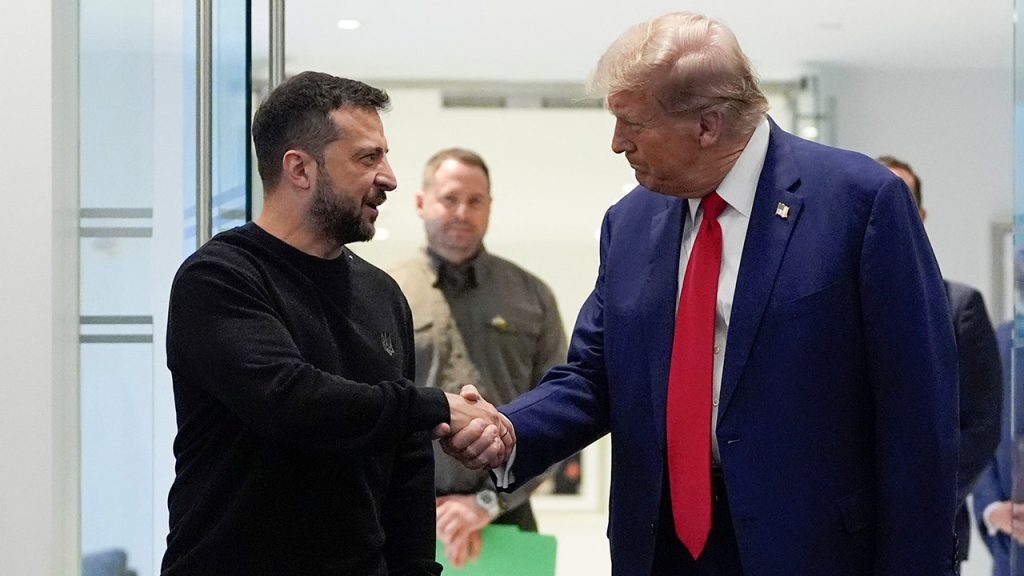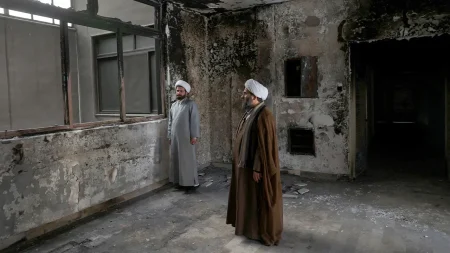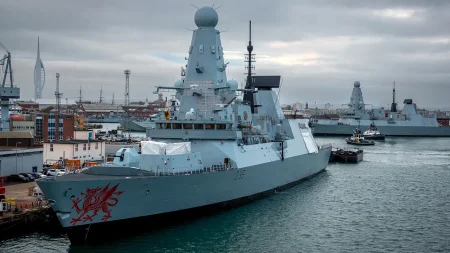Ukrainian President Volodymyr Zelenskyy expressed cautious optimism in a recent televised interview regarding the potential role of incoming US President Donald Trump in resolving the ongoing war with Russia. As the third anniversary of the Russian invasion looms, Zelenskyy highlighted Trump’s decisiveness as a crucial factor, suggesting that the former president possesses the necessary qualities to influence the conflict’s trajectory, potentially even bringing it to an end. Zelenskyy revealed that Trump had assured him of prioritizing a visit to Ukraine following his inauguration, a gesture that underscores the perceived importance of the bilateral relationship in addressing the conflict. The Ukrainian president emphasized the need for swift action in stabilizing the front lines against further Russian advances in the new year, while also speculating about Putin’s reluctance to engage in negotiations, viewing it as an admission of defeat.
The conflict, now approaching its third year, has seen Russia failing to achieve its initial war aims, and even its revised objectives, which focus on capturing the Donbas region in eastern Ukraine. Despite these setbacks, both sides approach potential peace negotiations with a degree of apprehension. Zelenskyy, while welcoming the prospect of talks, insists on security guarantees for Ukraine, particularly regarding NATO membership, as a prerequisite for any agreement. He underscores the significance of US involvement in these guarantees, viewing them as essential for Ukraine’s future security and independence.
Zelenskyy’s insistence on security guarantees, particularly NATO membership, reflects the complex geopolitical landscape surrounding the conflict. He sees these guarantees as crucial for safeguarding Ukraine’s sovereignty and deterring future aggression. However, this stance clashes with Putin’s stated position, who demands assurances that Ukraine will not join NATO as a condition for any ceasefire negotiations. Putin’s position underscores the strategic importance of Ukraine in the broader East-West confrontation and highlights the potential for NATO membership to escalate tensions further. This fundamental disagreement remains a major obstacle to achieving a lasting peace settlement.
The Ukrainian president’s emphasis on US involvement in any security arrangements underlines the crucial role of the United States in the conflict. Zelenskyy believes that without US backing, any security guarantees offered to Ukraine would be significantly weakened. This underscores the importance of the transatlantic relationship and the reliance of Ukraine on continued US support, both militarily and diplomatically. The incoming Trump administration’s stance on this issue will be crucial in shaping the future course of the conflict and the prospects for a negotiated settlement.
Addressing the question of his own political future, Zelenskyy reiterated his position that elections cannot be held while the country remains at war, as stipulated by the Ukrainian constitution. He stated that he might consider seeking re-election once the conflict is resolved, but that it is not currently a priority. His focus remains on navigating the ongoing war and securing a peaceful future for Ukraine. This approach reinforces the image of a leader dedicated to national unity and prioritizing the country’s immediate needs over personal political ambitions.
Zelenskyy’s statements reflect the delicate balance Ukraine must strike between pursuing peace and safeguarding its security interests. His insistence on security guarantees, particularly regarding NATO membership, and his emphasis on the role of the United States in these arrangements, underscore the complex geopolitical dynamics at play. The incoming Trump administration’s approach to the Ukraine conflict will undoubtedly be a significant factor in determining the path towards a resolution. The Ukrainian president’s cautious optimism, coupled with his firm stance on security guarantees, sets the stage for a critical period in the ongoing conflict.
